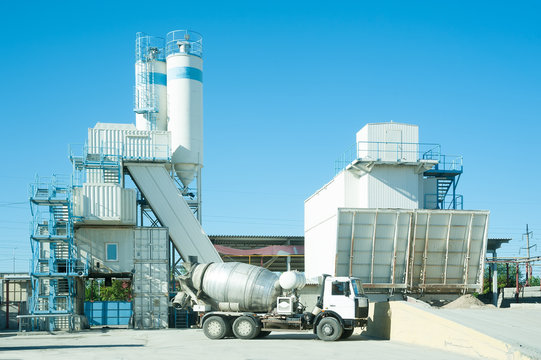The construction industry is rapidly evolving, and with the increasing demand for high-quality concrete, the role of Concrete Batching and Mixing Plants has become crucial. The Indian Roads Congress (IRC) has introduced IRC:SP:96-2012, which provides comprehensive guidelines for selecting, operating, and maintaining concrete batching and mixing plants. This document aims to assist contractors, engineers, and stakeholders in ensuring efficiency, durability, and quality in concrete production.

Concrete Batching and Mixing Plants play a vital role in infrastructure development. They ensure the accurate proportioning of materials such as cement, aggregates, water, and admixtures to produce high-quality concrete. The demand for rigid pavements and mega infrastructure projects has led to the necessity of having advanced and automated batching plants that optimize concrete production while maintaining consistency and quality.
When selecting a concrete batching plant, the following factors should be considered:
2. Efficient Operation of Concrete Batching PlantsThe guidelines emphasize the importance of smooth operations to maintain productivity and quality. Essential operational factors include:
3. Maintenance Practices for Prolonged EfficiencyProper maintenance is critical for the longevity and efficiency of batching plants. The document outlines maintenance schedules, including:
By adhering to the IRC:SP:96-2012 guidelines, construction professionals can achieve:
The IRC:SP:96-2012 serves as an essential reference for stakeholders in the construction industry. Following these guidelines ensures optimal selection, efficient operation, and proper maintenance of concrete batching and mixing plants, ultimately leading to superior infrastructure development.
RoadVision AI is revolutionizing roads AI and transforming infrastructure development and maintenance with its innovative solutions in AI in roads. By leveraging Artificial Intelligence, digital twin technology, and advanced computer vision, the platform conducts thorough road safety audits, ensuring the early detection of potholes and other surface issues for timely repairs and improved road conditions. The integration of potholes detection and data-driven insights through AI also enhances traffic surveys, addressing congestion and optimizing road usage. Focused on creating smarter roads, RoadVision AI ensures compliance with IRC Codes, empowering engineers and stakeholders to reduce costs, minimize risks, and elevate road safety and transportation efficiency.